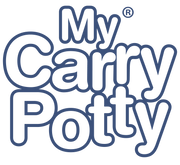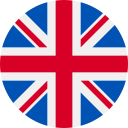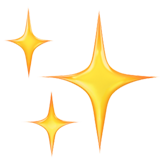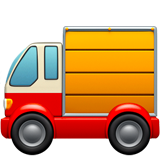How or when do I start night-time potty training?
This is the all-time big question I get asked by parents. As for daytime training, before you start you need to look for signs your toddler is ready. I tell the parents I work with to make sure their child is completely dry in the day for at least a couple of months before even attempting nighttime training. It is so important not to push night-tine training too early. Children can be up to 4 or 5 years old before they are completely dry at night as night-time dryness involves bladder control than during the day. Some children sleep deeper than others, which means that they are not aware when they have a full bladder which can lead to bed-wetting.

Signs of Readiness to look out for:
- When your toddler has mastered daytime potty training, has been dry for at least a couple of months and you start noticing a pattern where they wake up in the morning with a dry nappy/pull-up, this is a good sign that they are ready to take their night-time nappy/pull-up off.
- Another sign is If your toddler decides that they don’t want to wear their nappy/pull-up and, in the middle if the night, takes it off themselves!
- They may also start waking you up asking to use the potty/toilet during the night
- Try to avoid putting a nappy/pull-up on your child once you start night-time training as they won’t then worry if they wet it as they feel the protection.

Being prepared:
Being prepared is key, so here are a few items you will need before you start night-time training:
- Nightlight- Toddlers are often scared if the dark, so invest in a good night light which gives off a soft glow for the hallway and their bedroom. This will help guide them to the potty/toilet without feeling daunted by getting up in the dark.
- Waterproof mattress protector- Always be on the safe side is something I would say with night-time training. Mattress protectors are not very expensive and are widely available. The last thing you and your toddler needs is a soaking wet mattress in the middle of the night, which will be very distressing for all of you and will eventually damage and stain your mattress.
- Spare Sheets- It is always good to have a few spare sheets, so if you toddler does have an accident you can quickly change the bed without any stress. It is a good idea to have your sheets in a handy place to do a quick change over, because in the middle of the night everything seems a lot worse and it’s important for your toddler 6that this is a quick change around and a big issue is not made of it.
Get Started:
Before you start nigh-time potty training, it’s really important that you sit down and explain to your little trainer that they will not have a nappy/pull-up on when they go to bed, and if they need a wee or a poo they must go on the potty/toilet.
Make sure you put them on them on the potty in their bedroom, near a night light if possible, and make them aware of where it is. If they are using a trainer seat, make sure they have a soft light in the bathroom to help guide them to it in the dark. Loose pyjamas or nighties are a must-no all-in-ones or drawstring pyjama bottoms as your little one won’t have time to master these when they are sleepy as well as finding the potty/toilet.
Ensure you have a good bedtime routine. Make sure you reduce liquids 1 hour before bedtime- this includes fruit as some fruit, such as watermelon, strawberries, pineapple, oranges, raspberries, and cucumber contain up to 80% of water.
Get your little trainer to sit on the potty/toilet before bedtime so that they fully empty their bladder. It may take a little bit of distracting to keep them on there that little bit longer- a distraction box is great for this. Try reading them a book or blowing bubbles- but its important to encourage you toddler to sit there for at least 3-4 minutes.
It is important your toddler is not constipated when you choose to start night-time training as their bowel will be very full and this can out extra pressure on their bladder which can lead to bed-wetting.
Rewarding is great to introduce for night-time training, it is important to recognise when they do things right, and night-time training is another huge thing to tick off the list. Once you toddler wakes up dry in the morning, make sure you five them lots of praise, ‘Well Done- you are such a clever bog boy/girl. We are do happy!’ You can then reward them with a sticker/star as before and they can achieve a special prize at the end of the week. A reward system can also be used to encourage them to make sure they sit on the potty/toilet before bed.






